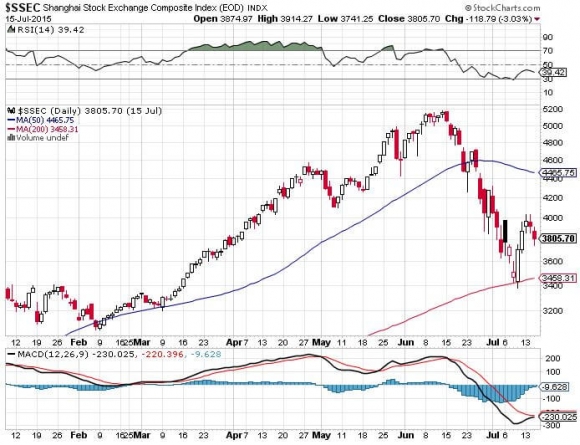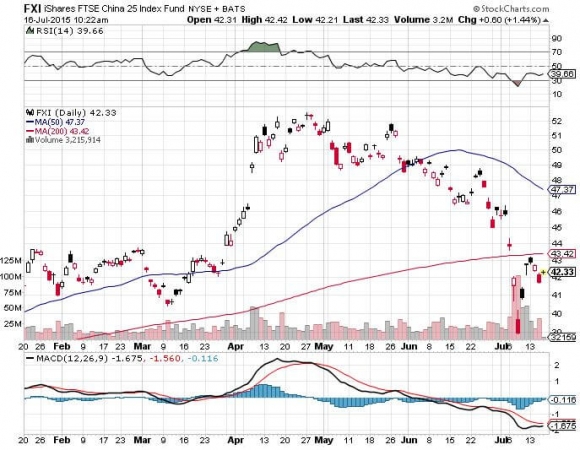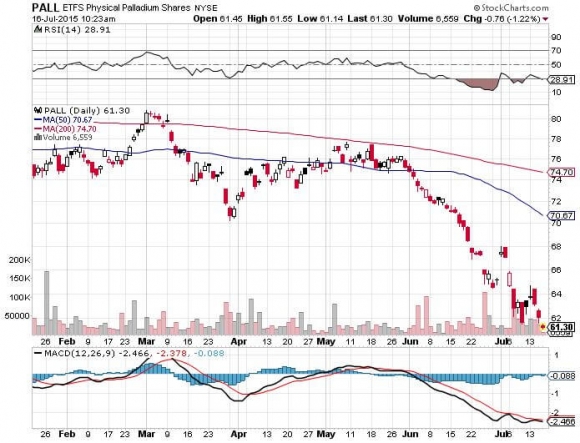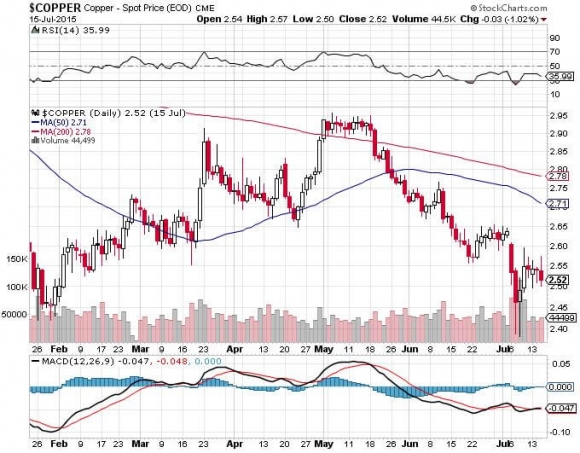The Global Consequences of the Chinese Stock Market Crash
I am writing this to you from the Historic El Minza Hotel in Tangiers, Morocco. I am overlooking the ancient medina from my top floor suite, which was once occupied by Sir Winston Churchill. When I first arrived, I thought the swirl of his cigar smoke still lingered in the air.
There is a brisk wind crossing the Straights, thankfully cooling my room, and in the distant mists, the Rock of Gibraltar looms.
When a butterfly flaps its wings in the Brazilian rainforest, a tsunami
pounds Japan. That is one of a potentially infinite numbers of outcomes predicted by Chaos Theory.
The upshot for our rapidly interconnecting economic and financial world is a runaway bull market in unintended consequences. Only this time, the proverbial butterfly has been working overtime in the Chinese equity markets.
The Chinese GDP growth rate peaked at 13% in 2011, and has been falling ever since, most recently down to the 7% level. The Shanghai stock market followed by giving up its growth premium, the index falling from 5,000 to 1,800. It then spent years bouncing around just over the 2,000 level.
About a year ago, Hong Kong based taipan friends of mine started enthusiastically predicting the onset of another great Chinese bull market. The government, it was said, would be stoking the fires to distract the public from an assortment of scandals besetting the central government.
They were wildly successful.
In November, they added fuel to the fire by permitting unrestricted foreign purchases of Chinese shares for the first time.
In less than a year, the Shanghai Index rocketed from 2,000 to 5,000, becoming the world?s top performing stock market. A frenzy ensued.
To get some local color on the trading there, I called no further than my son John, soon to be 30. By day he teaches English at a government university in Hangzhou. By night, he trades global assets in his own personal hedge fund.
Remember, this is the family where the kids used to discuss risk control, implied volatilities, and options pricing models over the dinner table (to the eternal puzzlement of Mom). My children learned their alphas, betas, and deltas right after their A, B, C?s.
John told me months ago that the bubble had nothing to do with investment, that it was all pure gambling, and that Shanghai had turned into a giant casino. Brokerages were besieged by massive crowds, transfixed by the blinking lights of stock tickers, betting their life savings.
Millions of punters had abandoned day jobs to play the stock market full time. Some shares rose 10% every day for two months! It could only end in tears.
And so it did, big time.
I have been through many crashes during my long and tortured life. But I have to say that this year?s Shanghai one has really impressed me. The index gave up 40% in less than a month, wiping out $3.25 trillion in paper wealth. Some individuals lost more than $100 billion in weeks. No typo here.
The problem is that this instant evaporation of wealth is not just China?s, but ours, as well.
For a start, the Chinese were selling gold (GLD) on the way up to finance new stock purchases. On the way down, they are selling what gold they have left to meet margin calls.
Thus, the barbarous relic has suffered an awful year, during conditions of closing banks and failing brokers that are normally ideal for it.
It turns out that individuals have been posting a lot of other things to collateralize leveraged stock holding, like bars of copper (CU). Because of the lack of a consumer lending system, Chinese buy copper bars and use them to backstop a whole host of purchases.
When stocks crashed, copper did so as well, as brokers dumped their collateral. That led to the biggest one-day drop in the red metal in nearly a decade, nearly 10%.
That dive spilled over into other base metals like nickel, zinc, and palladium (PALL). The Australian dollar (FXA) took it on the nose in turn, as it is a major exporter of these metals.
This would normally be taken as a leading indicator of a global recession. No more. Don?t get yourself confused, misreading the meaning of price moves like these. The global economy is, in fact, expanding, thanks to the Greek and Iranian nukes deals.
That is bad news for economic prognosticators like me, but great news for the world?s largest consumers of palladium, the US car industry.
There were also consequences from the Shanghai stock collapse to be faced in US capital markets. Whenever margin clerks see trouble anywhere in the world, they tend to tighten up their own books.
Call it the ?whistling past the graveyard? effect. That means tighter terms and higher interest rates for margin debt for you and me. Wonder why you, as an individual, can?t short naked puts in size? This is why.
There is also a concomitant rise in US Treasury bond (TLT) prices, and fall in yields, which we have already seen.
I could go on and on with permutations of the interconnection of asset classes around the world. It really is a kind of game for me, which I have been playing for nearly a half century (the Polish Zloty? The price of camels in Morocco?).
It all goes to prove a point that I never fail to make in my many strategy luncheons and speaking engagements.
We are all global diversified investors, whether we realize it or not.
 Your Newsletter Will Be With You Shortly
Your Newsletter Will Be With You Shortly









